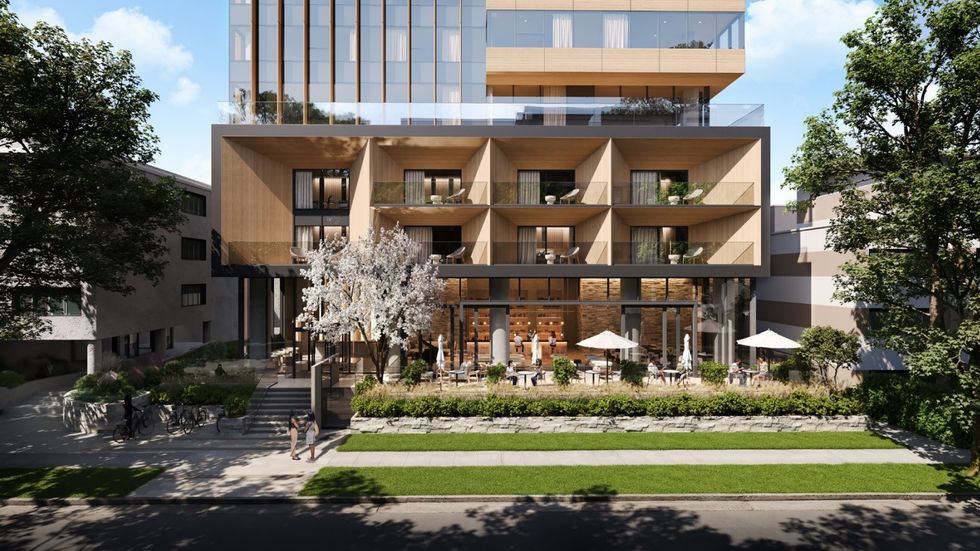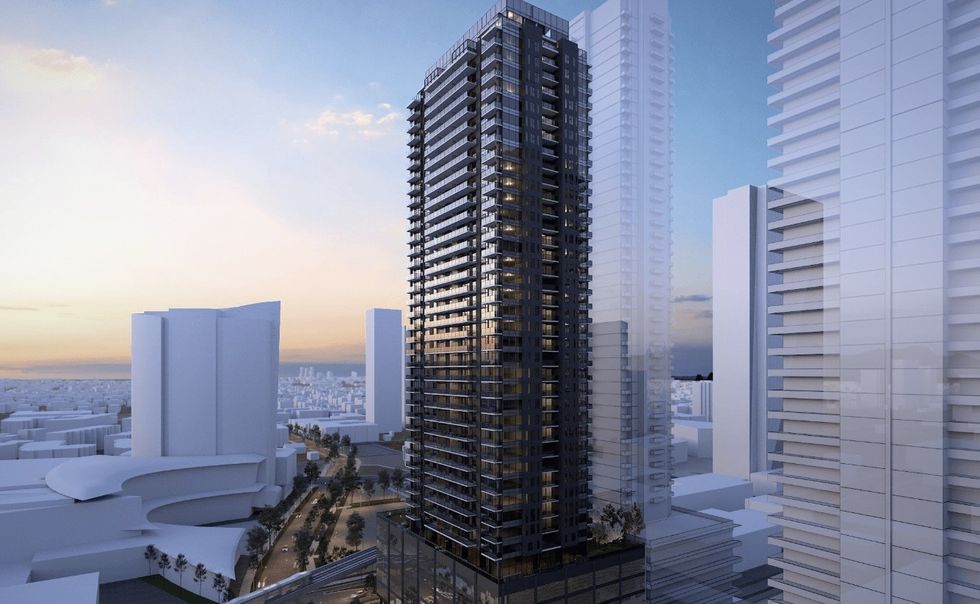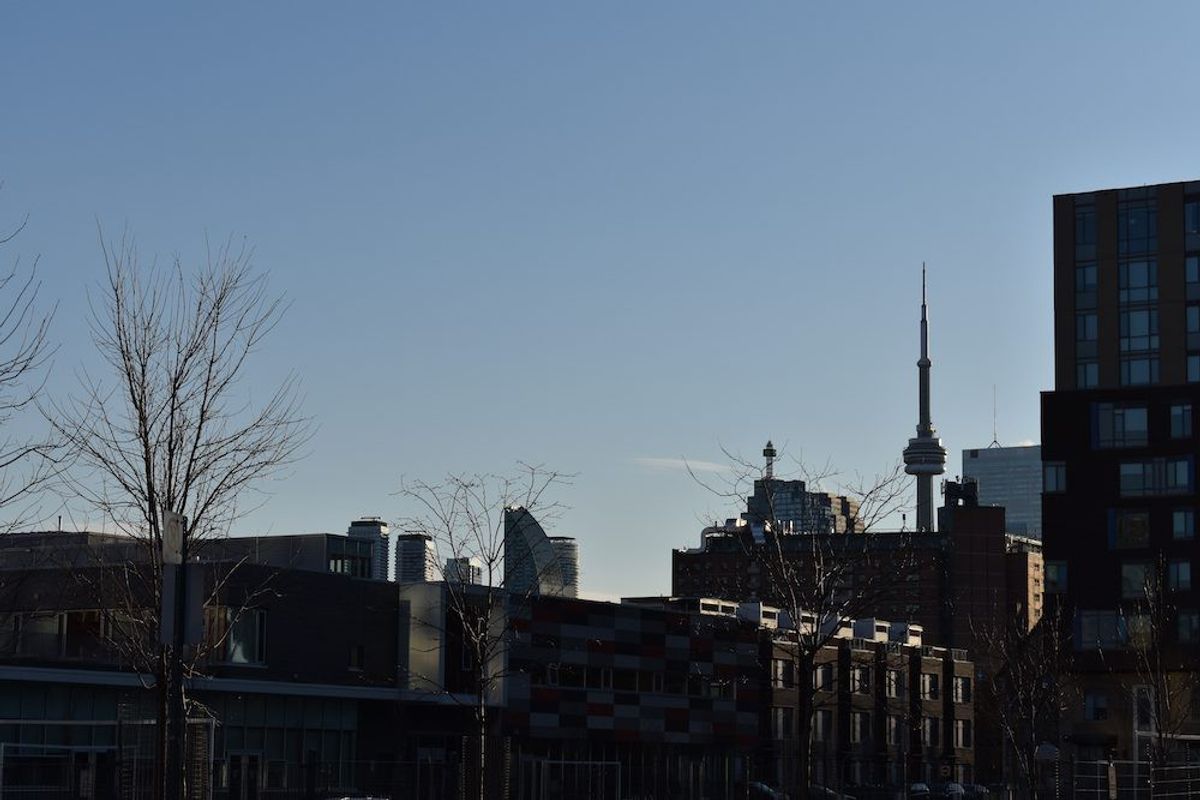When Nic Paolella registered for a third-year real-estate course at the University of British Columbia more than a decade ago, his professor quickly realized that he was not your average neophyte student trying to get a handle on this whole property-development thing.
Paolella had grown up in the business after his father, Marco, while waiting to get into welding school in the mid-1980s, found himself starting a construction business out in what was then the relative wilderness of the Fraser Valley. That company, Marcon, had grown well beyond the valley by the time Nic started university.
“I remember Nic. He knew what was going on. He stood out immediately,” remembers UBC prof Tsur Somerville, who noted that it’s not uncommon for him to get the children of prominent developers in his classes. But most of them, unlike Paolella, have been “not stellar,” in his experience.
So Somerville arranged for Nic to get into a graduate-level course with one of Vancouver’s most famous city planners, Larry Beasley, to get the kind of insight into building that he might not get at a construction company.
Many years later, that combination of real-world experience from his family and the more academic world of urban planning is Paolella’s foundation as he has slowly moved into the leadership ranks. Now, at 32, he is Executive Vice President and the occupant of a nice corner office on the 15th floor of a downtown Class AAA office building where Marcon has one of its two offices. (The other is in Langley.)
And that is taking him and the company to new places as he expands far beyond what Marcon started as: a basic construction company doing a pile of suburban and ex-urban housing.

Marcon isn’t the biggest developer in the province. In the various lists generated about BC’s top-producing developers, it sometimes doesn’t place at all or, as with one compiled by REW two years ago, it came in eighth among the cluster of familiar names like Polygon, Anthem, Bosa, Concord Pacific, Intracorp, Cressey, and Westbank.
But the company is moving up, with 4,000 homes under construction and another 15,000 to 16,000 in the pipeline. And it, along with Paolella, is starting to attract attention because of the unusual breadth of work it is doing – and the energy of its very young leader. (No, he’s not the youngest Vancouver has ever seen. In this city, where offshore magnates like to send their children to learn how to do property development and a second generation of local builders is taking over from their fathers, the young ones have ranged from 27-year-old Kevin Cheung, who started running Landa Global Properties a decade ago when he was just 27, to Terry Hui, who was 29 when he took over Concord Pacific.)
Marcon is involved in the usual multi-use projects that are standard fare for BC urban developers. One master-planned community in Coquitlam. A historic office building in the central business district. A lot of towers in the suburbs. A proposal for one tower in the Broadway Plan’s Kitsilano area, not far from where Nic lives with his wife and two young daughters.
Like other developers in the Lower Mainland, the company has moved into more rental housing as the condo pre-sales market has softened. It managed to get a sizeable chunk of low-cost financing from the federal government in the fall of 2023 – something not every developer succeeds in doing. That $108 million from the Rental Construction Financing Initiative is going towards a 215-unit rental tower a block away from the massive Oakridge Park development.
On top of that, the company has also proposed two full-service hotels for downtown Vancouver, one of them almost 600 rooms, in the last 20 months – something that even developers in the big leagues have been reluctant to take on, given the huge complexities of a hotel that is set up to host events and conferences, not just fill some rooms.

But there’s more. They also moved into seniors’ housing, another complex project type. (Though hotels and seniors’ housing are not as far apart as they might look, in Nic’s view; both are “operationally intensive” and require multiple sets of expertise to make them work.)
And then, to top it off, they’ve thrown themselves into the world of social-purpose housing. That started 10 years ago, when Marcon got involved with Lynn Valley United Church, whose leaders wanted to develop housing on their church property. They had assumed it would be the standard deal that most developers want: the church gives the land, the developer puts up the money and takes the profit.
Instead, the Paolellas suggested that the church share in the risk, but also the return.
“In the end, Lynn Valley now has an annuity every year,” says Kira Gerwing, an expert in social-purpose housing who used to be with Vancity Community Credit Union and now works with an impact investment fund that invests in affordable housing in BC and Alberta.
Since then, Marcon has partnered with the non-profit developer Catalyst Community Developments Society to build two Vancouver social-housing projects, as well as working on housing projects at other church properties in the Lower Mainland.
Now, Nic is in the process of setting up a non-profit entity that would use the back-office support system and expertise of Marcon, under the direction of a board chosen to focus on the mission of social housing rather than simply the standard one of finding a new development vehicle for the company.
A lot of private developers in BC have expressed interest in a mechanism that would give them access to government programs and money designated for non-profits. But not all have been interested in giving their non-profit entities much control over the resulting asset.
The non-profit sector has also tried to get private developers to enter into a non-profit structure, in order to use their expertise, size, and money to get more affordable housing built than the current mostly small-scale non-profits can manage.
“But Marcon is the only one who took up” on running it the right way, with an arms-length board, said Gerwing.
For Nic, the reason to do so is evident.
“There’s an unending need for affordable housing. Why not see if we could make a dent in that?” he says, just before digressing into asking whether the reporter has read Michelle Obama’s book with its message that “It’s better to be good than prolific.”
“We just want to do good and hopefully that means it’s good for the community,” he adds after the question.
It’s clear in 90 minutes spent with Nic that he has great plans for even more, whether that's developing a distinctive level of service and brand for rental housing that’s more like what some American builders do or researching and adopting the latest technology to manage access to garbage in multi-unit buildings.
The most recent manifestation of that, announced January 2, is the inclusion of a “third place” coffee shop, the hip Nemesis chain, in its new Pavilion development in Surrey. It’s something the company sees as a way to build social connections and add a new “culturally driven” and customer-centric approach to development. “The new community hub and place to propagate culture... is the embodiment of how Marcon is working to build trust and instill confidence in the market amid housing-market uncertainty,” Nic says.

Beyond just building, Nic has decided ideas on how governments should manage development.
He thinks the current provincial and city politicians are mostly on the right track with trying to push for as much housing development as possible, given the current (dire) situation for young people, even though some are unhappy with what feels like a heavy hand.
“Ultimately the community has to make choices,” says Nic. “How timely do we feel like we have to respond to the housing crisis and what are we willing to trade off to achieve these different goals.”
But they both need to be more flexible, especially the City, he said, which he believes is still caught in an old model of thinking that a certain formula – extra density to a project in order to get community benefits – will work forever. That time when that worked in Vancouver is gone.
“The formula is totally broken,” he said. The nine-year-old plan for the West End is already out of date because of the way building cost and revenue calculations have changed so rapidly since the plan was approved.
That means planners need to recognize that plans will have to adapt constantly almost as soon as they’re put in place (as we’ve seen with the Broadway Plan). An approach crafted in 2024 is not going to last for 30 years.
In spite of those cautions, Nic remains mostly buoyant about development. And life in general. If he has doubts or negative thoughts, it doesn’t show.
“I’m a history nerd and when you look at moments in time, you can pinpoint where the best [places] in the world [are] at that moment. I think we might be living in that.”




















